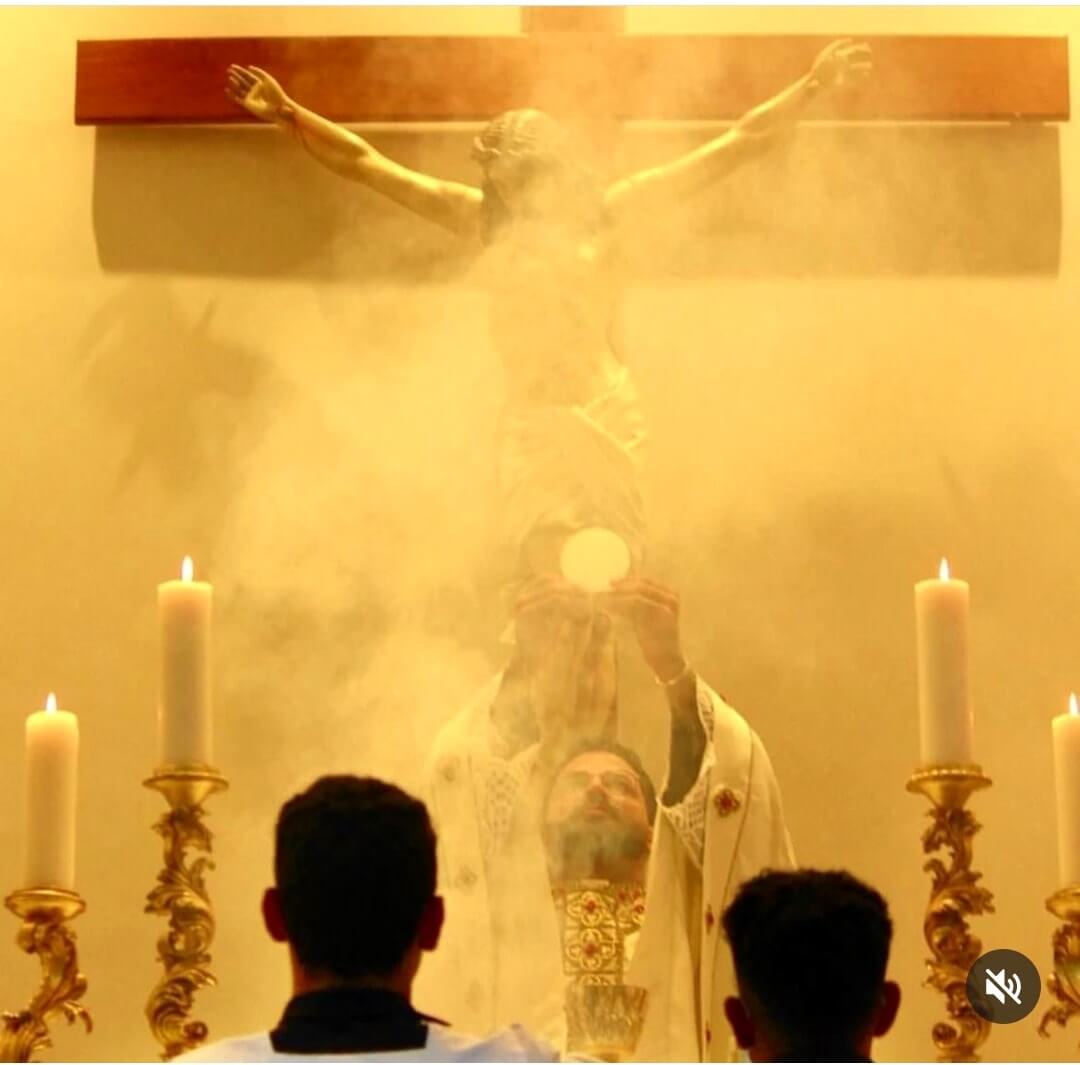
Jn. 6:51-58
We used to go regularly to a convent to celebrate the Holy Eucharist. They had another chapel that they used for their personal adoration and prayer. Sisters used to change the blessed sacrament occasionally. Whenever we change the blessed sacrament, the sister who accompanies the priest with a candle normally conceives the old blessed species. This time I got the privilege to change the old blessed sacrament. Anyhow, when I opened the tabernacle, I realized that the blessed sacrament had been affected by fungi, since we had not changed the blessed sacrament for a long time. I thought of dissolving it in water and disposing of it. I asked the sister to bring a vessel and water for the same. When sister brought it, I asked her, “Shall I dissolve it?” She immediately told me that she would conceive it. Somehow, I did not want to do it because the blessed sacrament was quite old and affected by fungi. I thought that if at all it affects, let it affect me, and I conceived it. Then I gave the blessed sacrament to the sister from the main chapel. While returning, I had little fear that would it affect my health? At that juncture, I felt an inner voice telling me that it is Jesus’ body and blood that give us eternal life, and something happens by conceiving it, and then I can be sure that I will cherish eternal life…
Today we celebrate the solemnity of the most precious body and blood of Jesus Christ. The celebration of this feast reminds us of the ultimate end of our lives, which is to be with God forever. It also reminds us that we are not earthly beings on a spiritual journey but rather spiritual beings on an earthly journey. And it is Jesus’ body and blood that provide us nourishment for this journey towards eternity. As we reflect on this gospel passage, we may wonder, “Why is the reception of Jesus’ body and blood necessary for our spiritual and eternal life?
Jesus says, “I am the bread that came down from heaven; whoever eats this bread will live forever.” To understand Jesus’ words, we also need to keep in mind the Exodus journey of the Israelites that we reflect in the first reading. When they were travelling through the desert for forty years, they were sustained by the Lord, who provided them with divine food called “manna.” Why did God give manna as food? It was possible for the Lord to give them some prepared food items, which they used to get in Egypt. Manna was unique, and they had not tasted it before. It was a daily food they could not collect and keep for the next day. There was not a single day they were deprived of manna. It was their daily bread. In fact, this manna was the prefiguration of the Holy Eucharist, Jesus’ body, and blood. However, the old manna could not give them eternal life, all those who ate manna, including Moses, did not enter the promised land.
However, providing them with a foretaste of the Eucharist was part of God’s providential plan. The moment they stepped into the promised land under the leadership of Joshua, manna was stopped. However, the Jews had a strong belief that when the Messiah came, he would bring manna again. The manna that Jesus brought forth was his own body and blood. By our merit, we can never inherit eternal life. Our inclination towards sin brought us death. At the end of our lives, our bodies die and decay. However, God created us as embodiments of both body and spirit. That is why Jesus sanctified human existence by taking flesh through his incarnation. In his earthly existence, he had to undergo the reality of death; however, he rose again on the third day without undergoing corruption, and his body became the prototype of the glorified boy. And, before undergoing this process of death and resurrection, he instituted the sacrament of the Eucharist, by which he could sacramentally and physically present in the consecrated bread and wine. So that when we receive Jesus’ body, it does not become part of us; instead, we become part of his resurrected body. Last day, the presence of this resurrected body in our being would transform our decayed bodily form into a resurrected bodily form. Thus, we would enjoy the presence of the Lord in our embodied selves. In the second reading, we read St. Paul exhorting the Corinthians: “The cup of blessing that we bless, is it not a sharing in the blood of Christ? The bread that we break, is it not a sharing in the body of Christ?” As we celebrate Corpus Christi, let us make it a point to receive this daily manna with the utmost faith and commitment so that we may live with Christ forever.